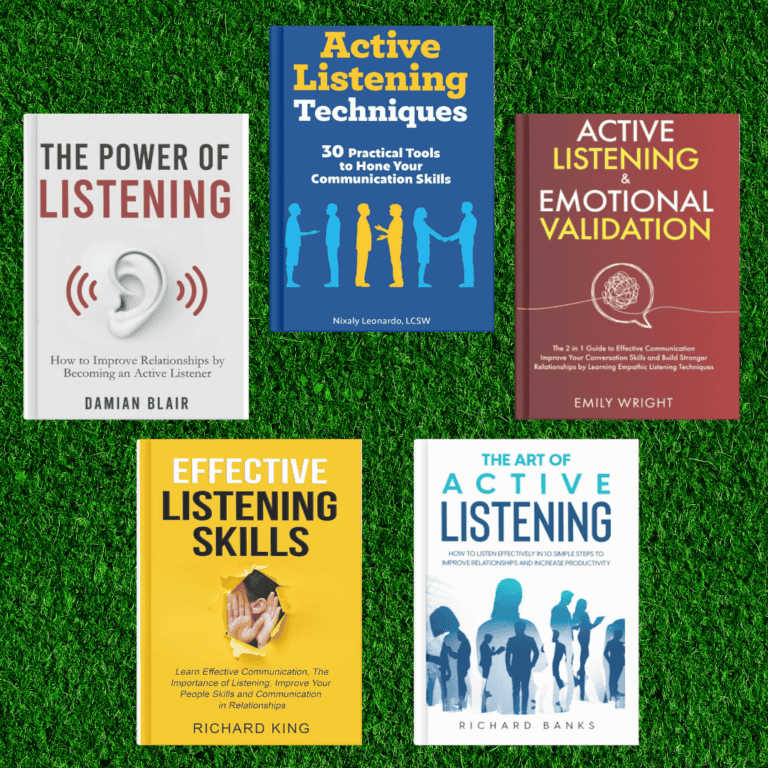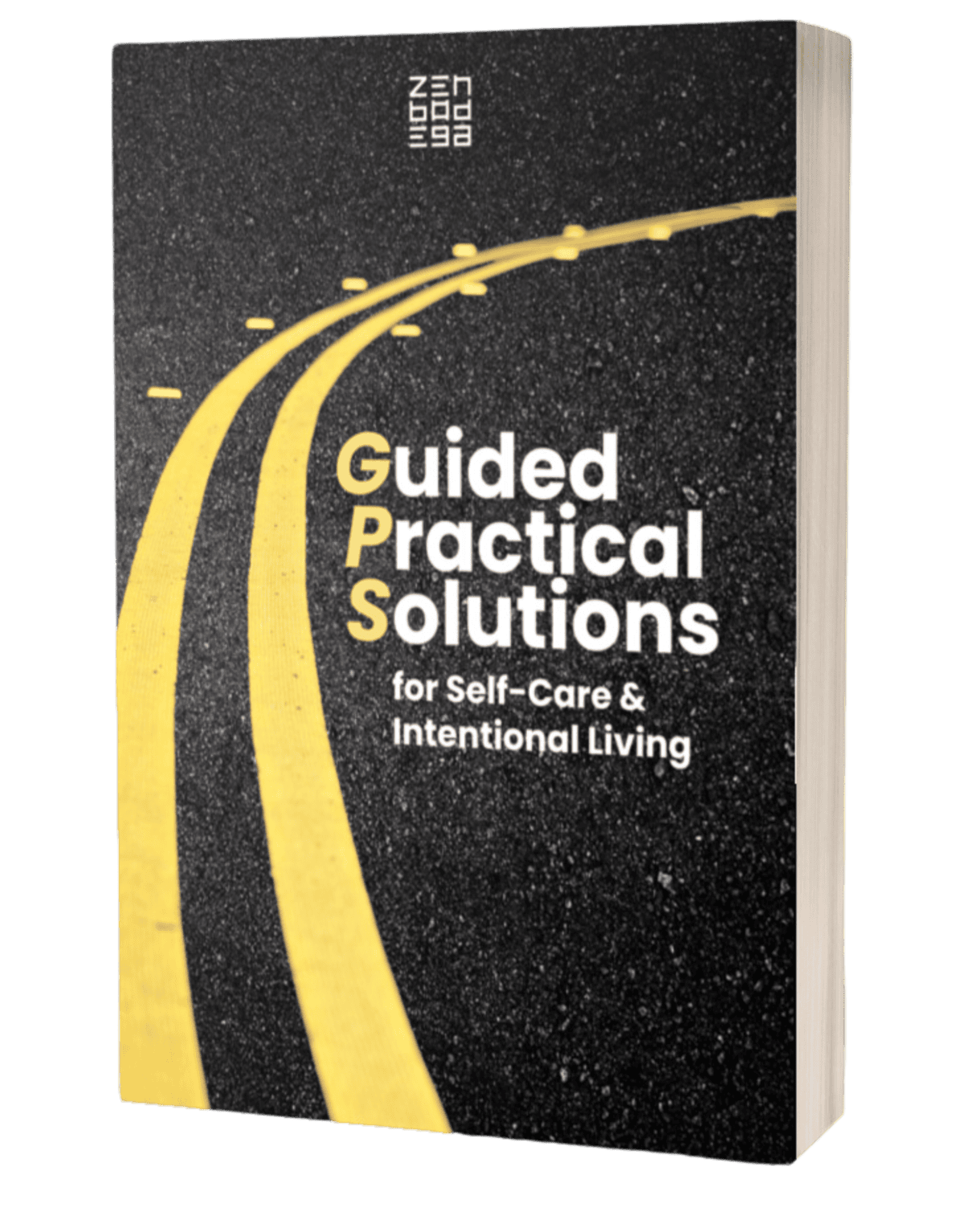5 Must-Read Books for Emotional Connection
Emotional intelligence is a crucial component in fostering meaningful connections, understanding, and empathizing with our loved ones.
It goes beyond mere cognitive intelligence, tapping into the deeper realms of emotions, social interactions, and self-awareness.
Recognizing its significance, literature serves as a remarkable conduit for enhancing emotional intelligence.
It provides a window into the nuanced world of human emotions and relationships, offering rich, empathetic insights that are often hard to glean from everyday experiences.
In light of this, we have curated a list of five exceptional books that are essential for anyone looking to deepen their understanding of emotional intelligence. These books are more than just stories; they are guides into themes such as empathy, effective communication, emotional regulation, and the art of understanding others’ perspectives.
Book 1: Thinking, Fast and Slow
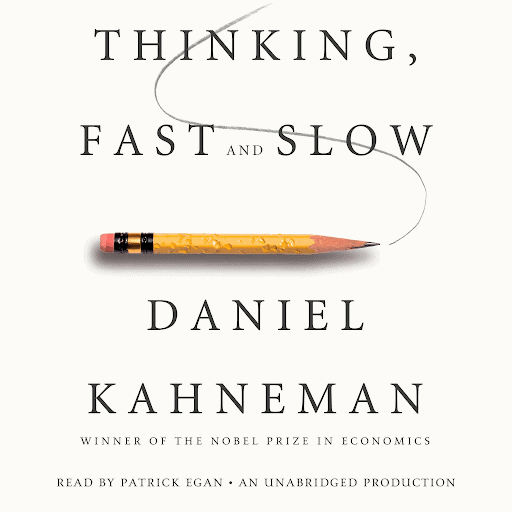
“Thinking, Fast and Slow” by Daniel Kahneman explores the two systems that drive the way we think—fast, intuitive thinking (System 1) and slow, deliberate thinking (System 2). Kahneman, a Nobel laureate in economics, delves into the fascinating intricacies of human decision-making, revealing the biases and flaws inherent in our thought processes.
One key takeaway from Kahneman’s work is that our fast, intuitive thinking often relies on emotional responses. We tend to make judgments and decisions based on our emotions and instincts, even when we believe we’re being rational.
Understanding this can help us recognize the emotional underpinnings of our choices and be more empathetic toward others’ decisions driven by their emotional states.
In relationships, “Thinking, Fast and Slow” teaches us to be mindful of our emotional responses and biases. By slowing down our thought processes and engaging System 2 thinking when needed, we can make more thoughtful and empathetic choices in our interactions with loved ones.
Recognizing that our partners also operate under the influence of these two thinking systems helps foster understanding and compassion.
Quotes or Excerpts to Highlight the Book’s Wisdom
- “Intuition is nothing more and nothing less than recognition.”
- “Our comforting conviction that the world makes sense rests on a secure foundation: our almost unlimited ability to ignore our ignorance.”
- “The confidence that individuals have in their beliefs depends mostly on the quality of the story they can tell about what they see, even if they see little.”
Daniel Kahneman’s “Thinking, Fast and Slow” is a profound exploration of human cognition that sheds light on how our emotions influence our thinking patterns. Cultivate deeper emotional connections and make more informed choices in our interactions with others by following insights from this book.
Book 2: The Relationship Cure
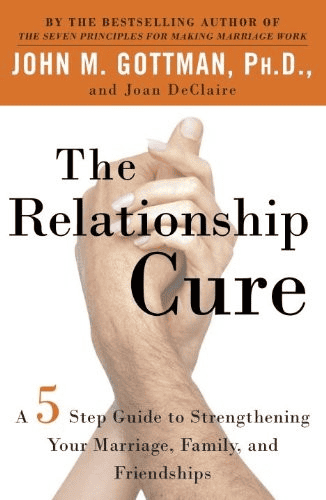
“The Relationship Cure” by John Gottman is a beacon of wisdom for anyone seeking to nurture and strengthen their emotional connections. Dr. John Gottman, a renowned psychologist, dissects the dynamics of empathy, understanding, and vulnerability, illustrating how these components create lasting bonds and build profound connections. His insights are research-backed.
Gottman’s research identifies the “Four Horsemen of the Apocalypse” – destructive communication patterns – and offers strategies to replace them with healthier alternatives, fostering emotional intimacy instead of strife.
One of the gems within “The Relationship Cure” is Gottman’s practical advice and exercises.
He provides readers with actionable steps to enhance communication, strengthen trust, and reignite passion. His “Love Maps” exercise, for example, encourages partners to continually update their knowledge about each other’s lives, promoting deeper connection and understanding.
Countless individuals and couples have attested to the transformative power of “The Relationship Cure.” Many noticed a significant improvement in their communication and emotional connection. Many found themselves better equipped to navigate conflicts and cherish the moments of joy together.
This book serves as a valuable guide, offering hope and practical tools for those seeking to enrich their relationships and forge lasting emotional intimacy.
Book 3: Getting the Love You Want
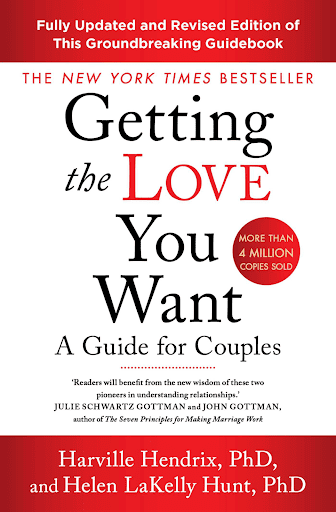
“Getting the Love You Want” by Harville Hendrix and Helen LaKelly Hunt ’s enduring value lies in its ability to illuminate the complex dynamics that shape our love lives. Authors emphasize that healing our past wounds and understanding our childhood experiences can lead to more fulfilling and meaningful partnerships.
It’s a valuable guide for anyone seeking to break free from destructive patterns and build healthier emotional connections.
What sets this book apart is that it is grounded in Imago Relationship Therapy, a concept introduced to be an unconscious image of our ideal partner shaped by our early caregivers.
The authors contend that we are unconsciously drawn to partners who reflect both the positive and negative traits of our caregivers. Through Imago therapy, couples learn to understand and empathize with each other’s childhood experiences, fostering empathy and communication. This approach creates a foundation for deeper emotional intimacy.
The book is rich with real-life examples and case studies that illustrate how couples have transformed their relationships using principles that showcase the tangible results of the Imago therapy techniques and offer hope and inspiration to those seeking to improve their emotional connections.
To incorporate book’s teachings into daily life, start by openly discussing your childhood experiences and relationship patterns with your partner.
Embrace active listening, empathy, and vulnerability.
Practicing the book’s exercises, such as the “Mirroring” technique, can enhance communication.
Additionally, consider seeking out Imago therapy professionals who can provide guidance and support as you embark on this transformative journey toward deeper emotional connection and love.
Book 4: The Art of Showing Up
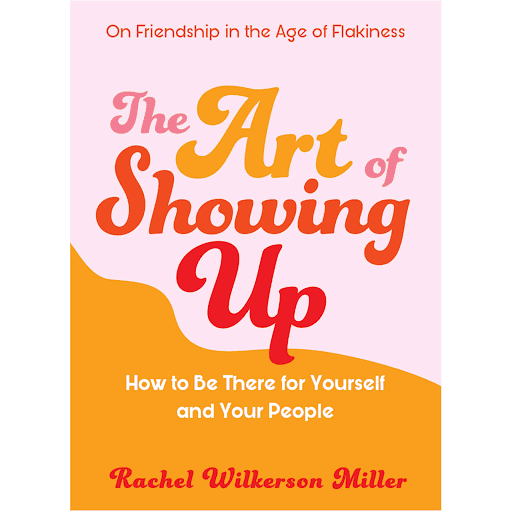
“The Art of Showing Up” by Rachel Wilkerson Miller delves into the intricacies of nurturing meaningful connections, emphasizing the importance of authenticity, vulnerability, and consistency in both romantic and platonic relationships.
Expert reviews and endorsements of “The Art of Showing Up” hail it as a transformative work in the realm of interpersonal relationships.
Esteemed psychologists and relationship experts have praised Miller’s practical and empathetic approach, applauding her for providing readers with actionable advice for building stronger emotional bonds.
Within the pages of the book, Miller offers a treasure trove of strategies and steps to deepen emotional bonds. From effective communication techniques to fostering trust and empathy, she guides readers through the art of cultivating authentic and enduring connections.
Her guidance helps individuals navigate various challenges, from conflict resolution to maintaining a healthy work-life balance. Many share stories of how “The Art of Showing Up” brought about newfound intimacy, understanding, and improved communication.
These testimonials underline the book’s power to inspire positive changes in the lives of those who embrace its wisdom.
Book 5: The Gifts of Imperfection
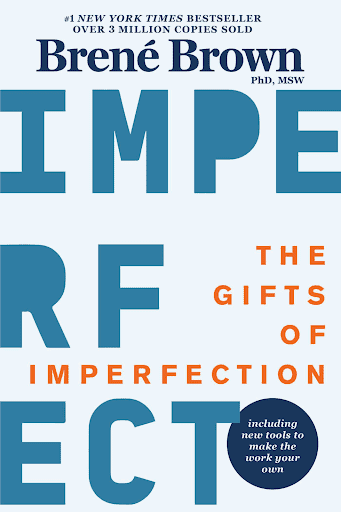
“The Gifts of Imperfection” by Brené Brown offers a powerful culmination to our journey of strengthening emotional connections.
Brown delves deep into the idea that embracing our vulnerabilities and imperfections is the key to cultivating meaningful relationships. She emphasizes the importance of authenticity, self-compassion, and wholehearted living. In essence, the book teaches us that our imperfections are not obstacles but gifts that connect us to others in a genuine way.
The core principles of “The Gifts of Imperfection,” it’s about letting go of the need for perfection and embracing vulnerability as a source of strength.
Brown’s lessons encourage us to practice self-compassion, set boundaries, and develop a sense of worthiness that allows us to form authentic connections with others.
Conclusion
These five books each contribute uniquely to strengthening emotional connections. Covey emphasizes proactive communication and mutual understanding, while Chapman focuses on the importance of understanding love languages. Gottman offers scientific insights into healthy relationships, Carnegie teaches the art of effective communication, and Brown emphasizes vulnerability and authenticity.
Start by applying the lessons from these books that resonate with you the most.
Your path to stronger emotional connections is not about perfection but progress, and each of these books provides valuable tools to help you along the way. With an open heart, embrace your imperfections as gifts that connect you to others in deeper and more meaningful ways.
The significance of emotional connection in our relationships cannot be overstated. It forms the very foundation upon which trust, understanding, and lasting bonds are built.
Let us make a heartfelt commitment to nurture and strengthen our connections with those we hold dear. Each book we read is a portal to new perspectives and a catalyst for self-improvement.
Let’s not only commit to fostering deeper emotional connections but also dedicate ourselves to continuous learning and personal growth.
Frequently Asked Questions
How can reading books about emotional intelligence improve my relationships?
Reading books on emotional intelligence provides insights into understanding and managing your emotions and those of others. This knowledge can lead to improved communication, empathy, and conflict resolution skills, thereby enhancing the quality of your personal and professional relationships.
Are the techniques and advice about strengthening emotional connection that are backed by scientific research?
Yes, many of the techniques and insights offered in these books are grounded in psychological research and studies. Authors like John Gottman and Daniel Kahneman, for instance, base their work on extensive research and clinical experience, providing readers with scientifically supported strategies for improving emotional intelligence and relationship dynamics.
Can books on emotional intelligence help in both romantic and platonic relationships?
Absolutely. The principles of emotional intelligence, such as empathy, effective communication, and understanding emotional responses, are applicable in all types of relationships. Whether it’s with a partner, friend, family member, or colleague, these books offer valuable insights for nurturing and strengthening connections across the board.
What is the focus of “Thinking, Fast and Slow” by Daniel Kahneman in relation to emotional intelligence?
Kahneman’s book delves into how our intuitive, emotional responses (System 1) often guide our decisions, highlighting the importance of understanding these emotional underpinnings to improve empathy and decision-making in relationships.
How does “The Relationship Cure” by John Gottman aid in strengthening emotional connections?
Gottman’s book provides practical advice and exercises, like the “Love Maps” exercise, to enhance communication, build trust, and deepen understanding in relationships.
What unique perspective does “Getting the Love You Want” by Harville Hendrix offer?
Hendrix’s book focuses on how our childhood experiences shape our adult relationships, using Imago Relationship Therapy to foster empathy and deeper emotional connections.
What are the key teachings of “The Art of Showing Up” by Rachel Wilkerson Miller?
Miller’s book emphasizes authenticity, vulnerability, and consistency in relationships, offering strategies to cultivate genuine connections and navigate interpersonal challenges.
How does “The Gifts of Imperfection” by Brené Brown contribute to relationship building?
Brown’s book encourages embracing vulnerabilities and imperfections as strengths, fostering authenticity and self-compassion, which are crucial for forming meaningful relationships.
Is it necessary to have a background in psychology to understand and apply the concepts from books about emotional connection?
No, it’s not necessary. These books are written for a general audience and aim to present psychological concepts in an accessible manner. They often include practical examples and exercises, making it easy for anyone, regardless of their background in psychology, to understand and apply the concepts in their daily lives.
How long does it typically take to see improvements in relationships after applying the techniques from books about emotional connection?
The time it takes to see improvements can vary greatly depending on individual circumstances and the specific issues being addressed. Some people may notice changes quickly, while for others, it might take longer to see significant progress. Consistent application of the techniques and a willingness to adapt and learn are key factors in achieving lasting improvements in relationships.






